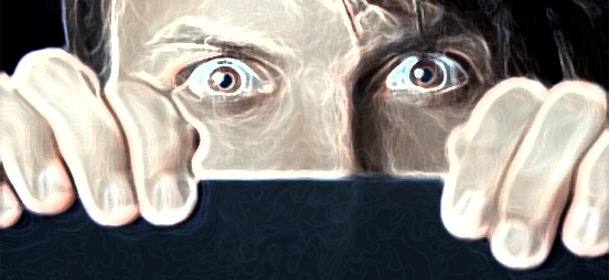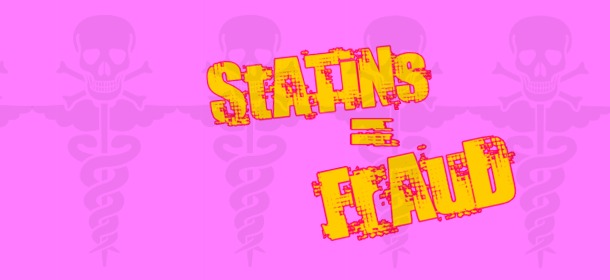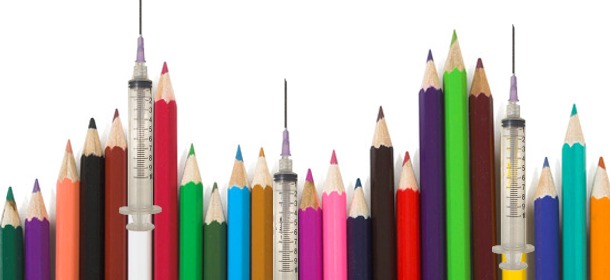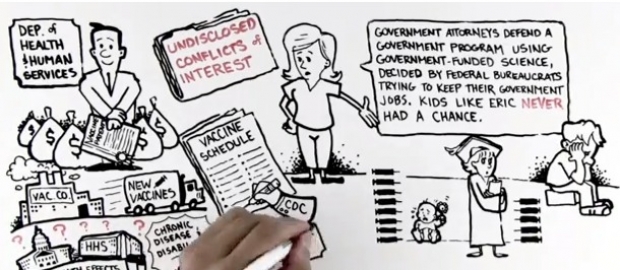Featured
Psychoactive Drugs Are the Cause of Most Mental Illness.

Fear in an Asylum, with thanks to the artist, Andrey Marchuk (http://pilt.delfi.ee/users/AndyM) – Image was cropped top and bottom.
First, some facts:
- Most people who suffered from a psychotic break (schizophrenia) recovered until the advent of Big Pharma’s psychiatric drugs.
- Bipolar disorder was so rare that only about 1 in 5,000-20,000 people were disabled by it, and nearly all of them recovered—until the drug Lithium came along. Now, 1 out of somewhere between 20 and 50 Americans is diagnosed and drugged for it. It’s now considered a permanent affliction.
- In 2007, the number of disabled mentally ill children had risen 35 times over the number in 1990.
- Until people were drugged for schizophrenia, their life expectancies were the same as anyone else’s. Now, someone given that diagnosis can anticipate losing 25 years off his lifespan. That means a man who could have expected to live a typical span of 78 years in the US today is likely to reach only 53, if he’s treated with antipsychotics.
These are astounding facts, but they are all carefully and thoroughly supported in Robert Whitaker’s brilliant book, Anatomy of an Epidemic,(1) and also in several of Dr. Peter Breggin’s books. This is an issue that’s close to home for me. Because the person afflicted isn’t me, but someone dearly loved, what’s been wrought by Big Pharma, psychiatry, and modern medicine has made it difficult to write on the subject.
However, what’s happening to people needs to be told, especially now that it’s being done to our children. Far too many of their lives are utterly destroyed by medical treatment that, in my view, can only be called malicious.
The Truth of Psychiatric Drugs
Psychiatry has been trying to pass itself off as real medicine along the lines of other medical professions like gastroenterology and neurology. To accomplish that goal, they made a decision to promote mental illness as physically-induced and drug-treatable. The American Psychiatric Association (APA), the National Institute for Mental Health (NIMH), and the National Alliance for the Mentally Ill (NAMI) colluded with Big Pharma to convince the world that up is down and black is white.
In spite of having absolutely no evidence, they claimed that people suffer mental problems because they have diseased brains—their brains are broken—they suffer from chemical imbalances. Years and years of research, some of it brilliant, attempted to prove that diseased brains are at the root of mental disorders. They were never able to do it, but that made no difference. Studies that showed the opposite were spun to give the impression that they’d shown physical or chemical differences in the brains of people diagnosed with mental illnesses.
It was nothing but a lie. There is not one shred of truth, not one shred of evidence, that people have anything whatsoever wrong with their brains when first diagnosed with any mental illness. It matters not whether the diagnosis is depression, bipolar disorder, schizophrenia, or any of the host of new diagnoses that have been trotted out as excuses to prescribe psychoactive drugs.
But now, there is truth in it. This is the real tragedy and crime of psychiatry—nowadays, after people have started to take psychoactive drugs, the original lie becomes the truth. The drugs cause brain damage, and all indications are that it’s permanent. This brain damage results in genuine brain disorders that cause the very symptoms for which the drugs are prescribed.
Psychiatry is causing the vast majority of mental illness.
The extent of this iatrogenic—medically induced—holocaust was nearly inconceivable before Big Pharma and psychiatry decided to go after children. Now, we truly don’t yet know just how bad it will become. If we consider the enormous damage done to adult brains, what must be happening to the brains of children? How much will their lives be shortened—after their virtual destruction in terms of quality?
Bipolar Disorder: Antidepressants & Antipsychotics
Bipolar disorder is a prime example of changes in the perceived natural course of mental illness. Just 50 years ago, bipolar disorder was exceedingly rare, with only 1 case in 5,000-20,000 people. Most sufferers—likely as many as 80%—suffered only one incident and went back to their normal lives. Now, though, as many as 1 in 20-50 people are diagnosed as bipolar, and as Whitaker clearly demonstrates in Anatomy of an Epidemic, the only possible explanation is that it’s induced by the drugs given for depression and psychosis. The prognosis now given for bipolar disorder is that it’s permanent. Psychiatrists generally offer no hope of escaping it!
Consider that children are now consigned to this mental drug scheme. How much shorter will their lives be, and in what condition will they spend it? Thanks to the likes of Dr. Joseph Biederman, who, according to Whitaker, “provided the diagnostic framework that made [diagnosis of children with bipolar disorder] possible”, we have enormous numbers of children being given this phony diagnosis and then drugged with the most potent and damaging of psychoactive drugs—and worse, with cocktails of them—imaginable.
These children inevitably become sicker and sicker. Because of a fake diagnosis—sometimes as young as two!—their lives are stolen. They become nothing but fodder for the Big Pharma and Big Medicine profiteering mills.
Of course, psychiatry has a slippery way of covering for what they’re doing to these children. They simply change the description of the natural course of the “disease” they’ve defined. Instead of acknowledging that most people recover, they now say that there is no hope for recovery. They now define what they’ve created as natural.
This is true terrorism. The modern medical system has decided that the people it’s supposed to serve are worthless, that their purpose is to serve as feed for the insatiable profits-producing machine they’ve become.
Reference:
- (1)Anatomy of an Epidemic, Robert Whitaker, pub. Broadway Paperbacks, Crown Publishing Group, 2010, pp 172-204
Tagged big pharma, biological mental illness, bipolar disorder, brain disease, conventional medicine, lithium, mental illness, modern medicine, pharmaceutical drugs, pharmaceuticals, profits machine, psychosis, schizophrenia














Pingback: Les psychotropes sont cause de la plupart des maladies mentales | Le libre arbitre
Pingback: Les psychotropes sont cause de la plupart des maladies mentales | LA VIDURE
Pingback: Les psychotropes sont cause de la plupart des maladies mentales | leCoinUtile
Pingback: Psychotropic medication causes psychosis, illness, and death | Next Level Nutrition
Pingback: Tightly Wound DNA in Schizophrenic Brains? It’s the Researchers Who are Too Tightly Wound | Gaia Health